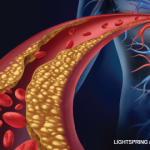 Nonsteroidal anti-inflammatory drugs (NSAIDs) have been used therapeutically since the 1960s.1 Evidence of adverse cardiovascular outcomes led to the withdrawal of the selective COX-2 inhibitor rofecoxib in September 2004, when the question of cardiovascular safety of NSAIDs first came into the limelight.2 Valdecoxib (Bextra) was subsequently withdrawn from the market in April 2005 due to adverse cardiovascular effects and serious skin reactions.3 The U.S. Food and Drug Administration (FDA) allowed celecoxib to remain on the market, but mandated a cardiovascular safety trial.4,5 The results of this trial, Prospective Randomized Evaluation of Celecoxib Integrated Safety vs. Ibuprofen or Naproxen (PRECISION), were recently published.6
Nonsteroidal anti-inflammatory drugs (NSAIDs) have been used therapeutically since the 1960s.1 Evidence of adverse cardiovascular outcomes led to the withdrawal of the selective COX-2 inhibitor rofecoxib in September 2004, when the question of cardiovascular safety of NSAIDs first came into the limelight.2 Valdecoxib (Bextra) was subsequently withdrawn from the market in April 2005 due to adverse cardiovascular effects and serious skin reactions.3 The U.S. Food and Drug Administration (FDA) allowed celecoxib to remain on the market, but mandated a cardiovascular safety trial.4,5 The results of this trial, Prospective Randomized Evaluation of Celecoxib Integrated Safety vs. Ibuprofen or Naproxen (PRECISION), were recently published.6
PRECISION Safety Trial
This was a randomized, multicenter, double-blind, noninferiority trial in 24,081 patients with osteoarthritis or rheumatoid arthritis, and with increased cardiovascular risk. Randomization was stratified by the patients’ primary diagnosis, aspirin use and geographic location. The trial goal was to assess the non-inferiority of celecoxib with regard to the primary composite outcome of cardiovascular death.
Patients were treated with celecoxib (100 mg twice daily), ibuprofen (600 mg three times daily) or naproxen (375 mg twice daily) for a mean duration of 20.3±16 months, with a mean follow-up of 34.1±13.4 months. Investigators could increase the celecoxib dose to 200 mg twice daily, ibuprofen to 800 mg three times daily or naproxen to 500 mg twice daily, following the first visit. All participants were provided with esomeprazole 20–40 mg for gastric protection. Patients who were receiving low-dose aspirin (<325 mg) were allowed to continue using it.
The primary composite outcome was the first occurrence of an adverse event that met Antiplatelet Trialists Collaboration (APTC) criteria. These criteria included death due to cardiovascular causes (including hemorrhage), nonfatal myocardial infarction or nonfatal stroke. A secondary composite outcome, major adverse cardiovascular events, included components of the primary outcome plus coronary revascularization, hospitalization for unstable angina, or transient ischemic attack. Clinically significant gastrointestinal (GI) events were also secondary outcomes. Tertiary outcomes included iron deficiency anemia (GI origin), clinically significant renal events, and heart failure or hypertension hospitalization. A non-adjudicated secondary outcome was arthritis pain intensity, which was assessed using a Visual Analogue Scale (VAS) (scores range from 0 to 100 mm, higher scores equal worse pain). Noninferiority required a hazard ratio of 1.12 or lower, as well as an upper 97.5% confidence limit of 1.33 or lower in the intention-to-treat population and 1.40 or lower in the on-treatment population.
The trial duration was 10 years, and 90% of the participants had osteoarthritis, while 10% had rheumatoid arthritis. During the trial, 69% of the patients stopped taking the study drug, and 27% of patients discontinued follow-up.


